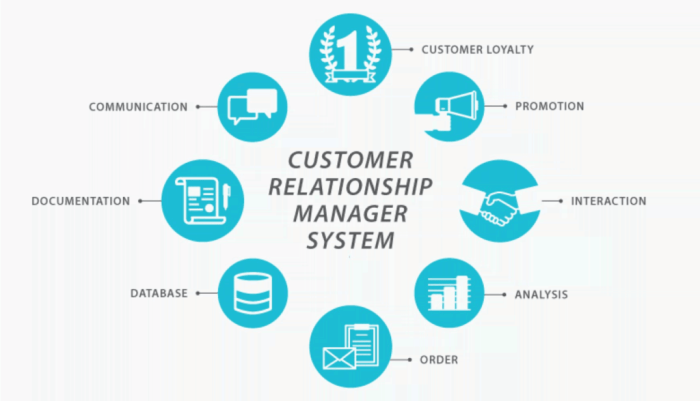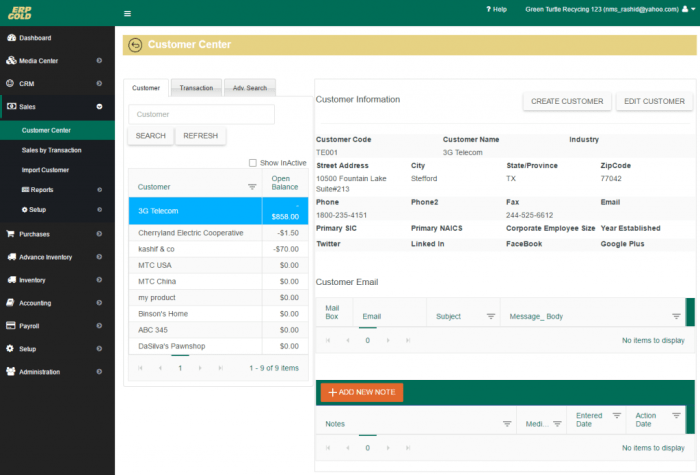In today’s competitive landscape, delivering exceptional customer service is paramount for business success. Customer Relationship Management (CRM) software plays a crucial role in achieving this goal. A well-implemented CRM system streamlines communication, centralizes customer data, and empowers service teams to resolve issues efficiently and effectively. This comprehensive guide explores the multifaceted world of CRM software for customer service, delving into its features, benefits, selection process, and implementation strategies.
Understanding the Role of CRM in Customer Service
CRM software acts as a central hub for all customer interactions. It goes beyond simply storing contact information; it provides a holistic view of each customer’s journey, encompassing past interactions, purchase history, support tickets, and preferences. This 360-degree view empowers customer service agents to provide personalized and proactive support, leading to increased customer satisfaction and loyalty.
Key Features of CRM for Customer Service
- Ticketing System: Efficiently manage and track customer inquiries, requests, and complaints through a centralized ticketing system. Features often include prioritization, assignment, and status updates, ensuring no issue falls through the cracks. Many systems offer automated email responses and ticket routing for faster response times.
- Knowledge Base: A searchable repository of frequently asked questions (FAQs), troubleshooting guides, and other helpful resources. This empowers customers to self-serve, reducing the workload on agents and improving response times. A well-organized knowledge base also helps agents quickly find solutions to common problems.
- Live Chat: Offer real-time support through integrated live chat functionality. This allows for immediate assistance, improving customer satisfaction and reducing wait times. Live chat can be integrated with other CRM features, such as the ticketing system, for seamless issue tracking.
- Call Center Integration: Seamlessly integrate phone calls with the CRM system, allowing agents to access customer information instantly during calls. This eliminates the need for manual data entry and improves the efficiency of phone support.
- Social Media Integration: Monitor and respond to customer inquiries and feedback across various social media platforms directly within the CRM system. This enables proactive issue resolution and allows businesses to build stronger relationships with customers on their preferred channels.
- Reporting and Analytics: Gain valuable insights into customer service performance through comprehensive reporting and analytics dashboards. Track key metrics such as resolution times, customer satisfaction scores (CSAT), and agent productivity to identify areas for improvement.
- Customer Segmentation: Group customers based on shared characteristics (demographics, purchase history, behavior) to personalize communication and tailor support strategies. This allows for more targeted and effective customer service.
Benefits of Implementing CRM for Customer Service
The advantages of using CRM software for customer service are substantial and contribute directly to the bottom line. Here are some key benefits:
- Improved Customer Satisfaction: Personalized support, faster response times, and efficient issue resolution lead to happier customers.
- Increased Efficiency and Productivity: Automation, streamlined workflows, and centralized information improve agent productivity and reduce operational costs.
- Enhanced Communication and Collaboration: Improved internal communication between agents and departments leads to better coordination and faster problem-solving.
- Better Data-Driven Decision Making: Comprehensive reporting and analytics provide insights into customer behavior and service performance, enabling data-driven improvements.
- Increased Customer Retention: Exceptional customer service fosters loyalty and reduces customer churn.
- Improved First Contact Resolution (FCR): Empowered agents with access to all customer information are better equipped to resolve issues on the first contact, reducing customer frustration and improving efficiency.
- Scalability and Flexibility: CRM systems can adapt to the changing needs of a business as it grows, ensuring long-term value.
Choosing the Right CRM Software for Your Business
Selecting the appropriate CRM software involves careful consideration of several factors. The best CRM for your business will depend on your specific needs, budget, and technical capabilities.
Factors to Consider When Choosing a CRM, Crm software for customer service
- Size and complexity of your business: A small business may require a simpler, more affordable solution than a large enterprise.
- Budget: CRM software comes in various price ranges, from cloud-based subscriptions to on-premise solutions with higher upfront costs.
- Integration capabilities: Ensure the CRM integrates seamlessly with your existing systems (e.g., email, phone system, marketing automation tools).
- Scalability: Choose a CRM that can grow with your business and handle increasing volumes of data and users.
- User-friendliness: The CRM should be intuitive and easy for your team to use.
- Customer support: Look for a vendor that provides excellent customer support and training.
- Security and data privacy: Ensure the CRM provider has robust security measures in place to protect customer data.
Implementing CRM Software: A Step-by-Step Guide
Successful CRM implementation requires a well-defined plan and careful execution. Here’s a step-by-step guide:
- Define your goals and objectives: Clearly articulate what you hope to achieve with the CRM system.
- Select the right CRM software: Carefully evaluate different options based on your needs and budget.
- Data migration: Transfer existing customer data into the new CRM system accurately and efficiently.
- User training: Provide comprehensive training to your team on how to use the CRM effectively.
- Integration with existing systems: Ensure seamless integration with your email, phone system, and other tools.
- Testing and refinement: Thoroughly test the system before full deployment and make adjustments as needed.
- Ongoing monitoring and optimization: Regularly monitor performance, gather feedback, and make adjustments to maximize the effectiveness of the CRM.
Frequently Asked Questions (FAQs)
- What is the cost of CRM software? The cost varies widely depending on the features, vendor, and deployment model (cloud-based vs. on-premise). Pricing can range from a few dollars per user per month to thousands of dollars for enterprise-level solutions.
- How long does it take to implement CRM software? Implementation time varies depending on the size and complexity of the project, but it typically ranges from a few weeks to several months.
- What are the key metrics to track for CRM success? Key metrics include customer satisfaction (CSAT), Net Promoter Score (NPS), average resolution time, first contact resolution (FCR), and agent productivity.
- Can CRM software integrate with other business tools? Yes, most modern CRM systems offer robust integration capabilities with other business tools, including email marketing platforms, marketing automation software, and social media management tools.
- What are some popular CRM software options? Popular options include Salesforce Service Cloud, Zendesk, HubSpot Service Hub, Freshdesk, and Microsoft Dynamics 365.
Conclusion: Crm Software For Customer Service
Implementing CRM software for customer service is a strategic investment that can significantly improve customer satisfaction, operational efficiency, and overall business performance. By carefully selecting the right CRM and following a well-defined implementation plan, businesses can unlock the full potential of their customer service teams and build stronger, more profitable relationships with their customers. Remember to continuously monitor and optimize your CRM strategy to adapt to evolving customer needs and technological advancements.

Source: cyberhoot.com
References
- Salesforce Service Cloud
- Zendesk
- HubSpot Service Hub
- Freshdesk
- Microsoft Dynamics 365 Customer Service
Call to Action
Ready to transform your customer service with the power of CRM? Contact us today for a free consultation to discuss your specific needs and explore the best CRM solution for your business.
Key Questions Answered
What are the key features of a good CRM system for customer service?
Key features include robust contact management, ticketing systems, communication tools (email, chat, phone integration), self-service portals, reporting and analytics dashboards, and ideally, integration with other business software.
How much does CRM software typically cost?
Pricing varies widely depending on the features, number of users, and vendor. Expect a range from affordable cloud-based options to more expensive enterprise solutions with customized features.
How long does it take to implement a CRM system?
Implementation time depends on the complexity of the system and the size of the business. Smaller businesses might see results in weeks, while larger organizations may require months.
What are some common challenges in implementing CRM software?
Common challenges include data migration issues, user adoption resistance, integration with existing systems, and the need for ongoing training and support.
Can a small business benefit from using CRM software?

Source: erp.gold
Absolutely! Even small businesses can benefit from streamlined communication, improved organization, and better customer relationship management. Many affordable cloud-based options are available for smaller businesses.
